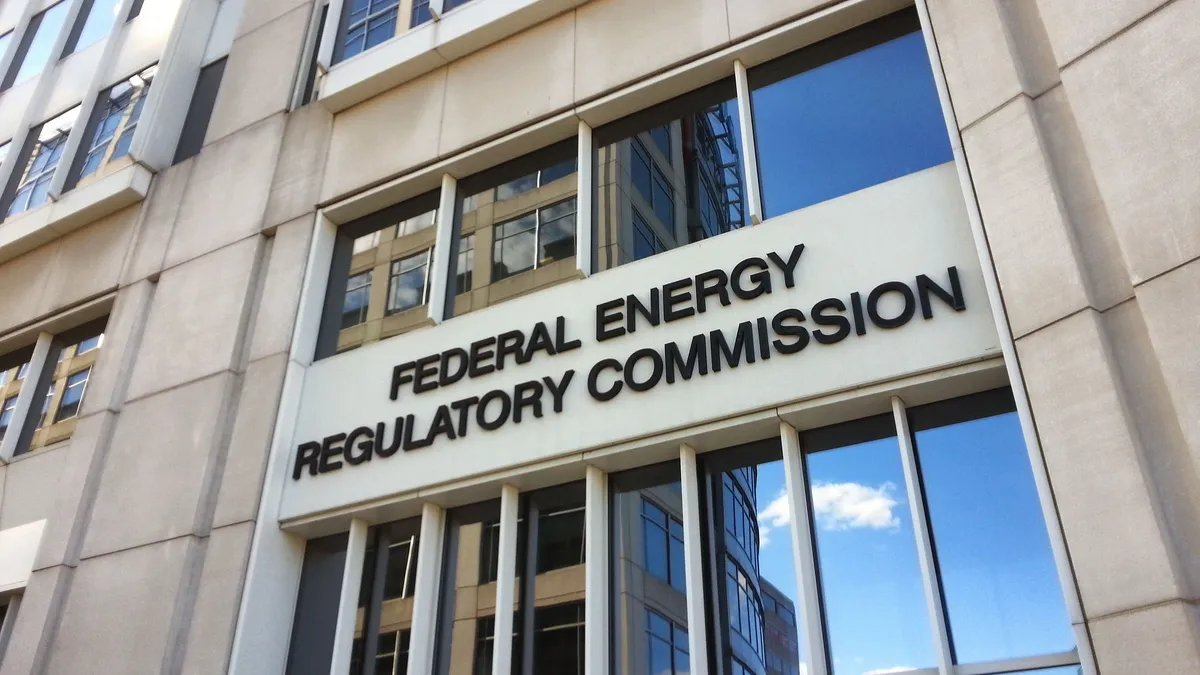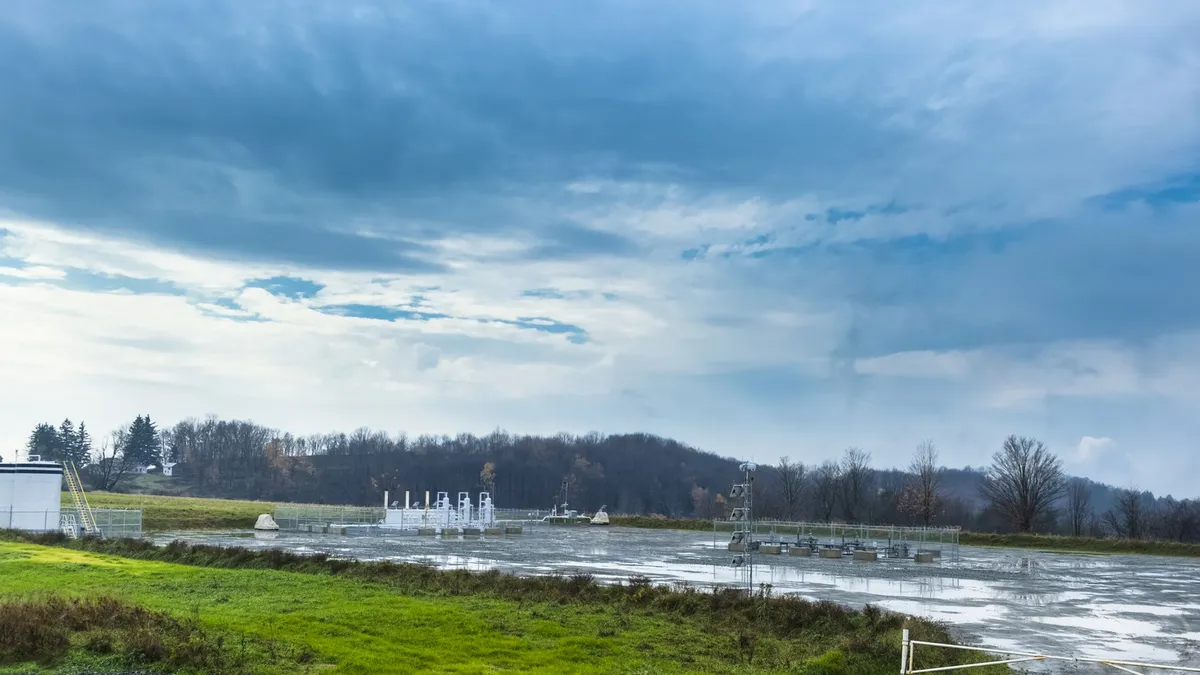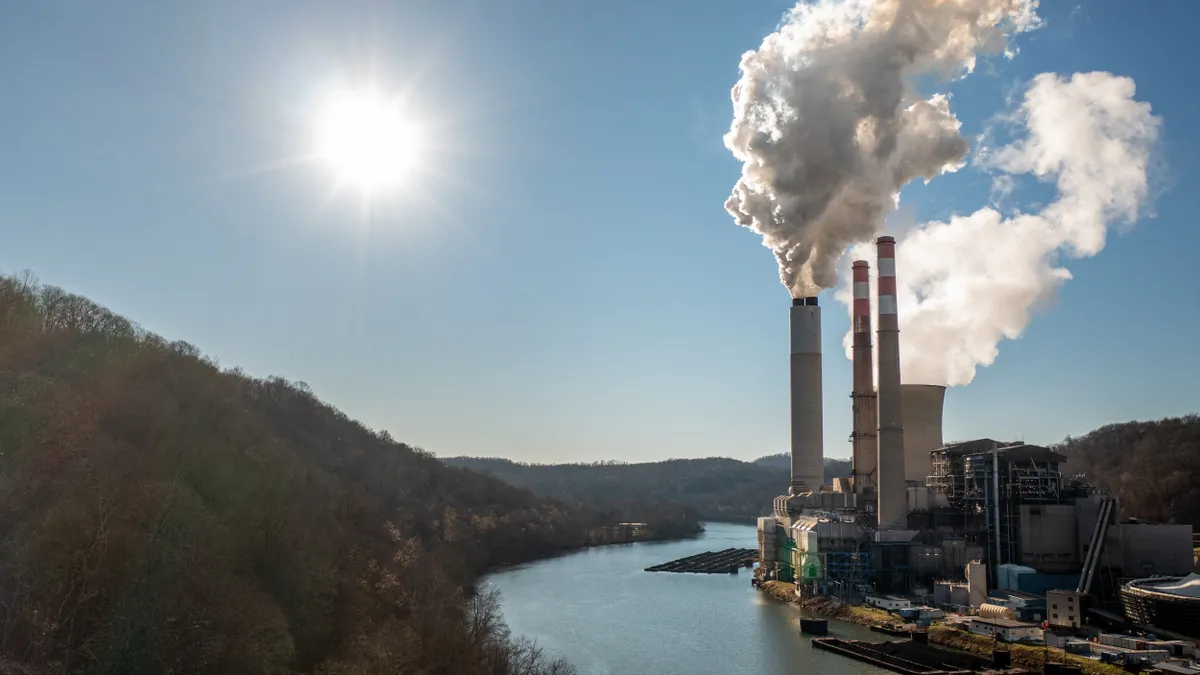The Federal Energy Regulatory Commission needs a few good candidates. Three, to be exact.
The five-member agency has been lacking a quorum since Commissioner Norman Bay resigned at the end of January in the wake of President Donald Trump’s appointment of Cheryl LaFleur as acting chairman.
Three names have been widely mentioned in the media to fill the open positions. All three presumptive nominees all seem to fit well with the president’s agenda of reducing regulation, strengthening the nation’s infrastructure and providing support for the coal industry.
“The administration seems to be working through a lot of hurdles,” said Frank Maisano, a senior principal at Bracewell LLC, but the delay is “unfortunate,” he said, “because of the urgency. We need a quorum of folks.”
FERC could play an important role in moving forward some of the new administration’s agenda items. The federal agency regulates the interstate transmission of electricity, natural gas, and oil and reviews proposals to build liquefied natural gas terminals and interstate natural gas pipelines. FERC also licenses hydropower projects and reviews certain mergers and acquisition and corporate transactions by electric companies.
Without a quorum, FERC is limited to what it can do, despite recent action delegating some additional authority to staff.
Progress on several natural gas pipeline projects in the Northeast already have been stalled by the lack of a quorum, including Spectra Energy’s NEXUS pipeline in Ohio, the PennEast pipeline in Pennsylvania and New Jersey, and National Fuel’s Northern Access pipeline in Pennsylvania and New York.
Lack of a quorum could also upset capacity auctions in the PJM Interconnection and New York. Pending filings at FERC argue that recently enacted nuclear subsidies interfere with those processes. If FERC is not able to rule on those issues, the petitioners might contest the auction results.
Those concerns would seem to argue in favor of a speedy selection process. The White House has not tipped its hand on process, but one source says the three candidates identified in the media do seem to be the likely nominees and are moving through the vetting process, albeit it slowly. They are Kevin McIntyre, Neil Chatterjee and Robert Powelson.
The Business Guy
The president’s presumptive pick for chairman is Kevin McIntyre, a partner at the Ohio-based firm Jones Day and co-head of the law firm’s energy practice.
Picking McIntyre would be in keeping with Trump’s stance as an outsider who places business success over political experience. But McIntyre also would bring deep experience with federal regulation to the position. He has broad experience advising clients on cases before FERC, including several cases regarding gas pipelines.
McIntyre or his team also have advised clients on acquisitions such as Lakeside Energy’s February 2015 sale of generation assets to Starwood Energy Group Global and American National Power’s July 2006 acquisition of the Coleto Creek plant from a joint venture of Sempra Energy and Riverstone Holdings. McIntyre’s team has also advised on transmission rate cases before FERC.
McIntyre would be a “terrific” pick, said Caileen Gamache, counsel at Chadbourne & Parke. He is smart and personable, she said, and she is encouraged at the prospect that Trump might pick someone with a diverse practice background.
Traditionally, a lot of FERC commissioners come from a regulatory background. It would be good to have someone with a deep knowledge of how RTOs and ISOs operate and a working knowledge of the complex transactions that take place in power sector, such as derivatives trading and virtual transactions, Gamache said.
Aside from his business qualifications, McIntyre’s affiliation with Jones Day should also play in his favor. A total of 14 Jones Day lawyers have already been tapped for posts within the Trump administration.
At the top of that list is Donald McGahn, who is now White House counsel. McGahn is a campaign finance lawyer and a former Jones Day partner. From 2008 to 2013, he was a commissioner with the Federal Election Commission, where he was credited with loosening campaign financing rules.
McGahn also served as Trump’s campaign counsel during his 2016 presidential campaign and helped prevent an effort to remove Trump from the New Hampshire Republican Party primary ballot.
The Hill Insider
Chatterjee does not come from business. He is a Washington insider and lobbyist. He also could represent a way for Trump to solve FERC’s quorum problem quickly.
Chatterjee was mentioned as a FERC nominee late last year during Congress’ lame duck session, so he presumably could move through the vetting process quickly. Otherwise, Chatterjee comes with a strong recommendation from his boss, Senate Majority Leader Mitch McConnell (R-KY). Chatterjee has been Sen. McConnell's energy policy advisor since 2009.
McConnell’s support for coal and opposition to the Obama administration’s greenhouse gas reduction rules, the Clean Power Plan, are well known. Chatterjee is McConnell’s advisor on those issues and his point man in the fight against the CPP.
Before working for McConnell, Chatterjee was a lobbyist for the National Rural Electric Cooperative Association for two years.
NRECA also opposes the CPP and filed a petition with the D.C. Circuit Court of Appeals, arguing that the rule exceeds the U.S. Environmental Protection Agency’s authority. NRECA also is a strong consumer advocate for its 39 generation and transmission cooperatives.
If Chatterjee’s views conform to NRECA’s, he could be an advocate to keep wholesale power prices low, but he also could be reluctant to embrace regulatory mechanisms supported by some environmental advocates, such as net metering or value of solar calculations.
In an interview with Bloomberg Government, Chatterjee named C. Boyden Gray as one of his mentors. On his firm’s website, Gray has a link to one of his essays that takes the EPA to task for its use of “co-benefits” to justify the CPP, but in a 2003 Foreign Affairs article Gray argues, among other things, that climate change is a real threat that needs to be addressed in a serious way.
The State Guy
The third presumptive nominee is Robert Powelson. As chairman of the Pennsylvania Public Utility Commission, Powelson would bring a state perspective to FERC. He has served at the PUC since 2008, and was recently appointed as president of the National Association of Regulatory Utility Commissioners in late 2016.
In his role as NARUC president, Powelson in January sent a letter to Trump’s transition team outlining his key concerns. Among those concerns are infrastructure replacements and nuclear waste, particularly moving forward with the Yucca Mountain national nuclear waste repository that was put in limbo during the Obama administration.
These are largely in line with his statements at NARUC's annual winter meeting in February. According to Powelson, infrastructure buildout—particularly interstate pipelines—and natural gas are key to the power sector's growth.
“The infrastructure piece is something we’re ideally positioned as we’re coming through a presidential transition period,” Powelson told Utility Dive in an interview. “And look, if there’s a trillion dollar infrastructure bill out there, one of the things NARUC is advocating for is: let’s not forget energy infrastructure.”
Powelson’s letter also called for the administration to remedy “recent federal agency decisions that have encroached on state authority,” particularly regulations that “bypass or undermine” state generation resource allocation choices, state initiatives to integrate distributed energy resources (net metering, for instance), and state transmission siting authority. (In 2011 FERC issued Order 1000, which calls for regional approach to transmission projects, over riding some utility prerogatives.)
The letter also expressed deep concern that the Public Utility Regulatory Policies Act is out of date and needs to be modernized.
PURPA was passed in 1978 in the midst of the concerns about energy independence and oil scarcity. Powelson argues that the concerns that PURPA was designed to address have largely been resolved, and the law needs to be brought up to date.
PURPA also provided a wedge that enabled the growth of independent generators and renewable energy. The law has been modified by subsequent energy legislation, but some advocates say the law is still an essential tool for developers of renewable energy projects, especially in states that lack renewable portfolio standards.
At NARUC in 2009, Powelson also pushed through a resolution on the state regulation of hydraulic fracturing. The resolution argues that states are “most appropriate regulatory body” to provide oversight on fracking and that the “federal Safe Drinking Water Act would add burdensome and unnecessary regulatory requirements to the drilling and completion of oil and gas wells.”
According to one NARUC member, the effort was “sort of a Tea Party moment in NARUC,” dividing the membership either on the substance of the resolution or on the appropriateness of the resolution since state regulators don’t have direct regulation over how gas is produced.
FERC’s purview
FERC watchers have noted that all three presumptive nominees have deep experience in energy matters and would bring a balance of perspectives—business, regulatory and political—to the agency.
They also have an obvious fit with Trump’s infrastructure and anti-regulatory agenda, and they appear to have a preference for conventional energy sources, such as natural gas pipelines, that reflects Trump’s support of fossil fuel sources over renewable resources. Those preferences could draw attacks from Democrats or environmentalists, or both, during the confirmation process.
But, as Maisano points out, environmental policy is not necessarily in FERC’s purview. The agency has no direct influence over environmental policy. The issues FERC deals with have more to do with competing business interests with some of the most contentious issues arising in battles between incumbents and new entrants.
And while some critics have expressed concern that Bay’s departure could signal the beginning of a FERC that is more accommodating of business interests and less concerned about enforcement of existing regulations, Bay’s focus on enforcement was unique, said Tyson Slocum, director of Public Citizen’s energy program.
The fact of the matter, said Slocum, is “FERC has so far been immune from the partisanship that has roiled other agencies.”
If the presumptive nominees do end up filling the vacant seats at FERC, Slocum said the likely outcome would represent “status quo for big players.”






















